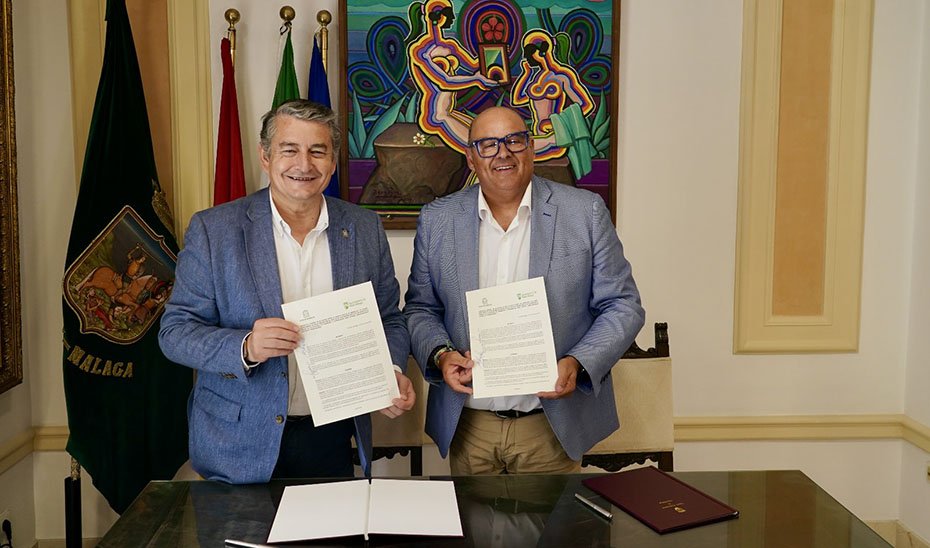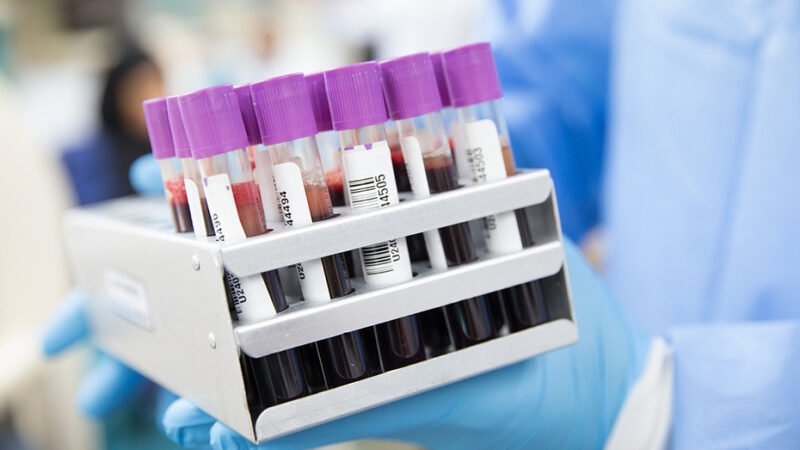Creación de centro de formación especializado en agrotech en Vélez-Málaga por La Junta y el Ayuntamiento.

The counselor for the Presidency, Interior, Social Dialogue, and Administrative Simplification, Antonio Sanz, and the mayor of Vélez-Málaga, Jesús Lupiáñez, have signed the agreement that formalizes the opening of a digital skills training center in this municipality of Axarquía specialized in applying technology to agriculture (agrotech). The center, which has already started its activities and is located in the Urban building provided by the City Council, offers digital training to make the use of water in crops more efficient, combat drought, and digitize the agricultural productive sector.
The counselor emphasized the need to «provide our young people with the necessary training to meet the demand for ICT profiles from Andalusian companies«. «We want technology to be the third economic engine of our region, and in provinces like Málaga, we are already achieving it,» he concluded.
Antonio Sanz explained that the installation of this digital training center specialized in agrotech in Vélez-Málaga is «not a whim», as «the subtropical climate and the geography of the Vélez River valley have allowed for diversified and productive agriculture, supported by strong cooperatives and institutional efforts to address challenges such as water scarcity«. He also highlighted that «we aim to attract entrepreneurs with disruptive ideas at this center.»
This center is one of the nodes created in the four agreements signed by the Digital Agency of Andalusia (ADA) with the School of Industrial Organization (EOI) to strengthen the business fabric of Andalusia, prepare it for the challenges and opportunities of the digital age, and promote the development of digital talent. These agreements, with a total investment of 30 million euros over four years, include the establishment of ten physical technological nodes plus one virtual node specializing in meeting the needs of the local business and labor market.
The technological nodes feature centers for High Business Performance, Digital Entrepreneurship centers, training for new professionals in the digital economy, and up-skilling training programs (training professionals in new skills and competencies).
Antonio Sanz stressed that «training will facilitate the digital development of companies, access for young people to high-value technological jobs, and, especially, digital entrepreneurship.» These projects are aligned with the entrepreneurship model advocated by the Andalusian Government, where public-private collaboration is essential to support and promote emerging Andalusian companies.
79 people already trained or in training in Vélez Málaga
The Vélez Málaga node started with two lines of action dedicated to training for business development and support for digital entrepreneurship. In both lines, 37 people have already been trained, and 42 participants are currently undergoing specialized training.
In the case of business development training, a first edition has already been completed, training 19 people, and a second edition is currently underway, starting on May 27 with 20 participants. This line offers a flexible itinerary designed to enhance the competitiveness of established SMEs and update the professional skills of their workers. Through specialized training, the aim is to promote innovation, efficient management, and internationalization of businesses in a sector like agriculture that is increasingly looking abroad.
A first edition of the digital entrepreneurship support line has also been held, training 18 entrepreneurs. The second edition started on May 7 with the participation of 22 people. In this program, entrepreneurs receive comprehensive support in all stages of the process, from business plan development to company launch.
Third line in September
Starting in September, the node will offer a third line of action focused on training for young people. Currently, the call for training in «AI applied to the agri-food sector» is open, a course that will allow students to acquire the necessary knowledge to enter the job market at a professional level in a more innovative and digital agri-food sector.
In addition to the Vélez-Málaga node, the agreement with EOI allows for the creation of nine more physical technological nodes plus one virtual node specializing in meeting the needs of the local business and labor market. These include Jerez, focused on the aerospace sector; Córdoba, focused on technology applied to logistics, civil, and military; Cádiz, based on the high-tech naval industry; Jaén, focused on video game design and digital content; Granada, focused on Artificial Intelligence; Linares, focused on software development for electric cars; Huelva, focused on Green Industry 5.0; Utrera and Puente Genil.
In addition, a virtual node extends the project to the entire Andalusia region, especially to smaller municipalities and rural areas. This virtual technological node currently has open calls for five courses for young people and five courses for companies and professionals. These courses range from generative artificial intelligence for SMEs or digital marketing for your business, to AI-driven robotics, 3D printing, or Data Analytics. The training offer can be found on the portal www.andaluciavuela.es
The counselor highlighted that these nodes follow a «new learning model», offering training tailored to each specialization based on the economic potential of the territory where they are created, with the aim of promoting competitiveness, self-employment, and the creation of new businesses in each of these sectors. At the same time, Antonio Sanz valued the provision of training itineraries «specifically designed for each profile» (SME workers, unemployed youth, or digital entrepreneurs) through courses that can even be carried out online or in a blended format.
3,212 registrations in Andalusian nodes
Through these nodes, a total of 123 training activities have been convened, with 62 already completed, 28 in the training period, and 33 in the student recruitment phase. The response has been significant, with 3,212 registrations, 1,745 enrolled participants, and 728 individuals who have successfully completed their training, enhancing their digital skills
Thanks to these technological nodes, around 40 digital entrepreneurship projects have been promoted, and 38 SMEs have improved the competitiveness of their companies through our ‘High Business Performance Center’ program.
It is worth noting, for example, the boost in training in Artificial Intelligence, one of the strategic areas for the digital future. In this area, 30 specific actions have been implemented, with 13 already completed, 13 in the recruitment phase, and four currently being delivered.
Among the most popular training activities is the online course for SMEs ‘Generative Artificial Intelligence for SMEs (4th Edition)’. This course has been designed to integrate generative artificial intelligence into the business strategies of SMEs, transforming operations and enhancing the customer experience through the use of advanced AI tools and prompt engineering techniques.

